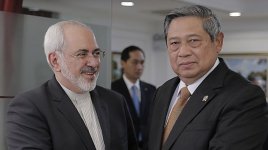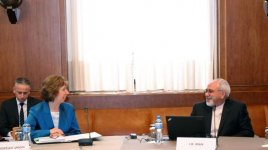The International Monetary Fund has referred to Iran’s Targeted Subsidy Reform as an example of successful cash transfer and income distribution in the Middle East and North Africa.
A new IMF paper shows how subsidy reform has recently gained momentum in the Middle East and North Africa and outlines the elements of successful subsidy reform.
The following are excerpts of the IMF analysis about Iran’s Targeted Subsidy Reform.
Iran’s Targeted Subsidy Reform remains one of the most ambitious attempts to reform subsidies in an energy-exporting country. This homegrown reform was unprecedented in Iran’s economic history in its scale, preparations, and potential implications. It primarily aimed at removing implicit subsidies on energy (estimated at about 13 percent of GDP on a pretax basis) and other products.
The authorities reached out to more than 70 million citizens and engaged in a months-long public relations campaign. The reform envisaged changing the domestic relative prices for energy products by bringing them close to international levels over five years, reducing pollution, and helping transform Iran into a more competitive market economy.
The reform attempted to replace direct price subsidies with universal cash transfers to households. It also envisaged direct assistance to enterprises to facilitate adjustment to the new price structure, and to the government so as to facilitate payments of the government’s own higher energy bill.
In the first phase of the reform, the authorities substantially increased the prices of all major petroleum products and natural gas, as well as electricity, water, and bread with price increases by up to 4 to 20 times. The plan was to use the revenue from these price increases to compensate households with universal cash transfers.
In addition, the enterprises were to receive subsidized loans for the adoption of new, energy-saving technologies and credit lines to mitigate the impact of energy price increases on their production.
The universal cash transfers to households were to improve income distribution because low-income households, with their limited energy consumption, benefited little from subsidized domestic energy prices.
Moreover, with the opening up of bank accounts for receiving cash transfers, financial access would be increased.
After a smooth start in December 2010, the second phase of the reform, which would involve a new round of price increases, was postponed in mid-2012 following the marked deterioration in economic conditions and with mounting implementation problems.
Economic growth decelerated and inflation rose after the first phase of the reform. The Targeted Subsidy Reform, which was designed to be fiscally neutral, faced cash-flow imbalances because a large share of the revenues expected from energy price increases failed to materialize, and such revenues fell short of the committed cash transfers to households.
Intensification of international sanctions and the large exchange rate depreciation led to reversal of the gains achieved and eventual postponement of the reform.
The initial success of the reform in driving down the consumption of the subsidized products and improving income distribution waned because of the sharp increase in inflation in the absence of supportive macroeconomic policies.
The consumption of subsidized products initially declined. Domestic consumption of liquid fuels fell by about 3 percent in 2011 compared to 2009, driven by the decline in gasoline and fuel oil consumption. Natural gas consumption continued to rise, but its growth significantly decelerated.
Likewise, the growth in electricity consumption dropped to 2 percent in 2011, its slowest pace in a decade. Consumption of wheat, a key staple targeted by the subsidy reform, also fell in 2011 for the first time in a decade, with price increases significantly reducing smuggling of flour to neighboring countries.
But despite the initial positive response of demand to price changes, the growth in consumption of subsidized products rebounded in 2012 as the price increases under the second phase of the reform were suspended, energy prices remained unchanged, and inflation and nominal incomes rose. Some indicators also suggest that the energy intensity briefly declined during the first phase of the reform.
Direct cash transfers improve income distribution
The poverty rate was declined by about 5 percentage points in the first three months of the program. Monthly cash transfers, 445,000 rials (about $45 when the reform was launched) per person doubled incomes for many large and poor families and brought per capita income above the $2 per capita a day poverty threshold.
As a result, the Gini coefficient is estimated to have improved to 0.37 in 2011 from 0.41 in 2010, with a sharp drop in inequality in rural areas. Although no official data are available, the sharp contraction of the economy, rapid increase in inflation, and decline in real value of wages and cash transfers since 2012 are likely to have eroded some of the gains in income distribution.
(Source: The IMF)

























.jpg)